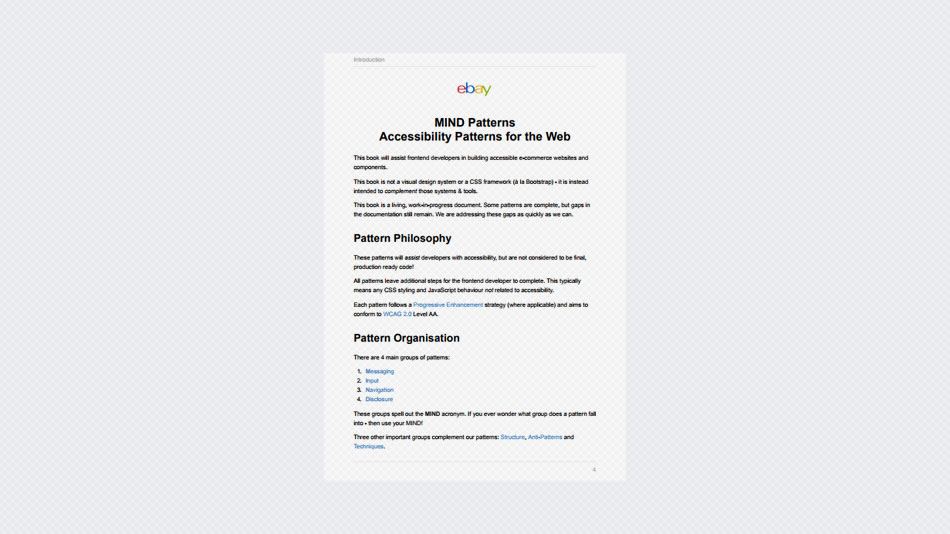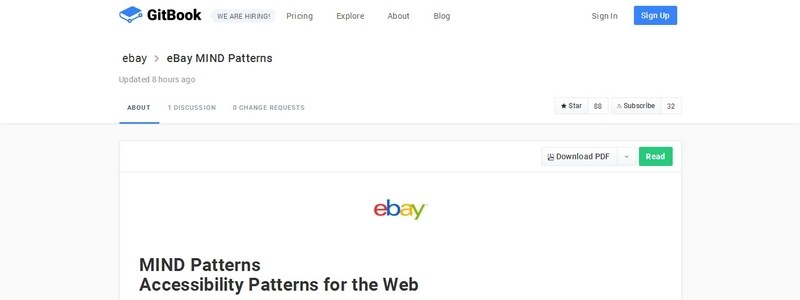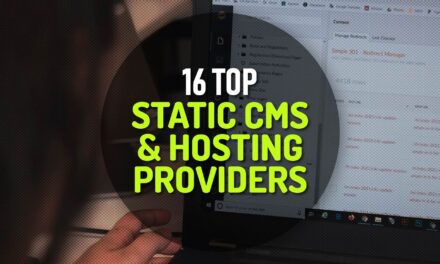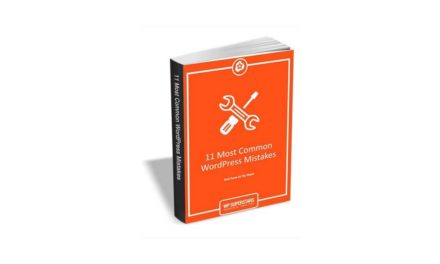
MIND Patterns: Accessibility Patterns for the Web

This book will assist frontend developers in building accessible e-commerce websites and components. This book is not a visual design system or a CSS framework (a la Bootstrap) – it is instead intended to complement those systems & tools. This book is a living, work-in-progress document. Some patterns are complete, but gaps in the documentation still remain. We are addressing these gaps as quickly as we can.
Pattern Philosophy
These patterns will assist developers with accessibility, but are not considered to be final, production ready code! All patterns leave additional steps for the frontend developer to complete. This typically means any CSS styling and JavaScript behaviour not related to accessibility. Each pattern follows a Progressive Enhancement strategy (where applicable) and aims to conform to WCAG 2.0 Level AA.









